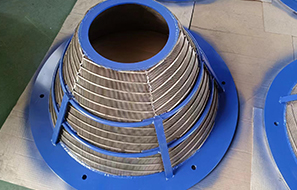Filtration is such a widely used process in the pharmaceutical industry as to be considered almost omnipresent. Filtration can be easily applied to a large variety of pharmaceutical needs, and because of this flexibility, it is widely used within the industry.
The pharmaceutical industry needs different filtration methods depending on what sort of chemical solution is being used. Generally, two major types of filtration systems exist.
Surface filtration:
Surface filtration works by direct interception. The size of the pores of the filter is responsible for the separation as the screen allows particles of a specific size through but traps molecules that are too large to fit through the pores.
Depth filtration:
Compared to surface filtration, depth filtration also retains particulate matter farther down from the surface. It is primarily used for clarification of solutions. Among the most common filters used in-depth filtration are sintered filters.
The metal sintered filters can be cleaned in situ, and as the filter cake (the layer of filtered material at the membrane) forms, the screen becomes more efficient.
Equipment used in pharmaceutical industrial filtration
Industrial filtration requires many different types of machines to be applied to the process. The choice of device depends on several factors, including the properties of the fluid and the size of the particles that are being filtered. Equipment used in filtration ought to be economical to operate and be easily sterilized by heat, radiation or gas. Additionally, for mechanical systems, the size of particle that it can deal with should be known. Some of the mechanical devices used in pharmaceutical industrial filtration include:
Filter bags can serve as both a surface and depth filter. They offer a range of filter media in different ratings, depending on what the screen is intended to be used for.
In most filtration techniques, the blinding of the filter can lead to a reduction in the efficiency of the system. To deal with this, many modern applications of filtration techniques have turned to self-cleaning filters, especially in filters that don't need to be replaced after each cycle.
Across all the areas of pharmaceutical production, there are multiple methodologies for filtration systems. Each application is specific in what it filters, and the mechanisms used to achieve the final product. Surface and deep filtration both have their uses within the industry. As technology advances, both existing and new methods of filtration can capitalize on better, more efficient filters and methods of employing them within the pharmaceutical industry.

 Centrifuge Baskets - Mineral Processing Equipment
Centrifuge Baskets - Mineral Processing Equipment
 Sieve Bend Screen for Starch Screening
Sieve Bend Screen for Starch Screening
 Media Retention Filter Nozzle for Liquid Filtration
Media Retention Filter Nozzle for Liquid Filtration
 Stainless Steel Parabolic Screen for Mineral Processing
Stainless Steel Parabolic Screen for Mineral Processing